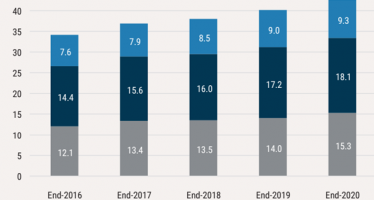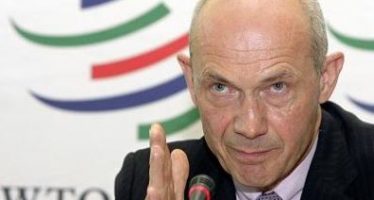Johannesburg Stock Exchange: Pioneering Sustainable Development

Johannesburg
Shifting attention away from the next quarter’s results towards sustainability parameters indicative of long-term objectives, has been a challenge for stock exchanges the world over. Only recently has the concept of socially responsible investment (SRI) moved out of its niche and onto the main market. The United Nations-supported Principles for Responsible Investment (UNPRI) Initiative – a set of six codes incorporating environmental, social, and corporate governance issues that investors may voluntarily adopt and adhere to – have now been embraced by well over 1,200, mostly institutional, investment funds representing about $34 trillion in assets.
The global financial crisis of 2008-9 provided an added impetus to investors to take a second look at SRI. A growing number of previously sceptical fund managers have now pledged to abide by PRI guidelines in recognition of the need to factor in more than just financial indicators when making investment decisions.
The upsurge in demand for corporate data on sustainability has led stock exchanges around the world to respond with the introduction of indices and rules that aim to encourage companies to embrace business practices that take ESG (Environment, Social, and Governance) values into consideration.
ESG Framework
The Johannesburg Stock Exchange (JSE) was one the first to design and implement a comprehensive framework for ESG reporting. The dismantling of South Africa’s apartheid system opened the country to outside investors eager to become part of the success story. As the rainbow nation shed its legacy, companies too had to address a range of social issues in order to adapt to the new reality. Even more than elsewhere, South African businesses found that social responsibility and sustainability issues could no longer be ignored. Likewise, local fund managers began to acknowledge the importance ESG.
“The Johannesburg Stock Exchange (JSE) was one the first to design and implement a comprehensive framework for ESG reporting.”
As early as 1994, South Africa raised the bar on corporate governance by issuing a non-legislative code of conduct for private business. The King Report on Corporate Governance – named after retired Supreme Court judge Mervyn E King who chaired the committee that formulated the code at the behest of the Institute of Directors – outlined an approach to business that encompassed leadership, sustainability, and corporate citizenship qualities.
The King Report also emphasised the need for businesses to involve all stakeholders and consider their interests. The report drew wide attention outside South Africa and has been hailed as the most effective summary of best practices in corporate governance. The King Report was revised and expanded on in 2004 and 2010. King III concludes that governance, sustainability, and strategy are closely linked, and emphasises integrated reporting as a critical component of good governance. Full compliance with the King Report is now a requirement for all companies listed on the Johannesburg Stock Exchange.
Signing On
Early awareness of the importance of ESG values has led 28 South African investment funds to adhere to the UNPRI Initiative. This includes the Government Employees Pension Fund (GEPF) which manages assets worth around $150 billion and owns sizeable stakes in the country’s largest corporations. The JSE also signed on to the UNPRI – one of the first to do so.
At the forefront of ESG reporting, the Johannesburg Stock Exchange has identified and addressed five areas of concern.
Regulation (I)
The JSE has taken an early by incorporating sustainability principles – as outlined in the King Reports – into its regulatory framework. All listed companies are expected to be in full compliance with the latest revision of the King Report on Corporate Governance.
Investment (II)
The JSE has created a number of tools that investors may use to gauge a company’s ESG performance. In May 2004, the JSE launched the Socially Responsible Investment (SRI) Index that rates listed companies according to ESG parameters and enables fund managers to reach their responsible investment targets. The SRI Index now offers live values to investors worldwide.
Research (III)
With a proactive approach to strategy and planning, the JSE maintains a number of projects that aim to identify and explore opportunities across the spectrum of sustainable development. The challenges posed by sustainability concerns – such as the ongoing debate on climate change – also offer new opportunities that may add to South Africa’s attractiveness to investors worldwide.
Advocacy (IV)
The JSE is actively involved in promoting sustainable business practices though participation in public fora, policy entities, and advisory bodies. The exchange aims to stimulate public debate and play a part in the setting of policies by building partnerships with all parties involved in the promotion of the sustainability agenda.
Internal Sustainability (V)
As a private and listed company – and a corporate citizen – the Johannesburg Stock Exchange maintains various programmes that aim to contribute to the social advancement and empowerment of previously disadvantaged people. The JSE also runs a number of community programmes to help address skills shortages and create awareness about the working of capital markets. The exchange also instituted an internal Environmental Management Committee charged with mitigating the environmental impact of its operations.
Meeting Place
As a meeting place of businesses and investors, the JSE has pioneered the search for opportunity in a world that increasingly rejects unfettered depredatory economic growth in favour of sustainable development. Instead of bemoaning ESG values as a brake on growth and profitability, the JSE has shown that sustainability offers a wealth of opportunity to both investors and corporations.
By providing benchmarks and facilitating engagement, the JSE has contributed to a behavioural shift that benefits not just investors and businesses but the wider South African society as well.
You may have an interest in also reading…
China’s Renminbi Needs Convertibility to Internationalise
On July 21, the Official Monetary and Financial Institutions Forum (OMFIF) published its eighth annual report on Global Public Investors
Frontier Asia and Hopes for More Inclusive Growth
The International Monetary Fund (IMF) and the Japan International Cooperation Agency (JICA) on January 28th held a conference in Bangkok,
WTO: China’s Role in Global Economic Governance
By WTO Director-General Pascal Lamy Extracts from his Speech delivered at the China Development Forum in Beijing, 24 March 2013
















































































